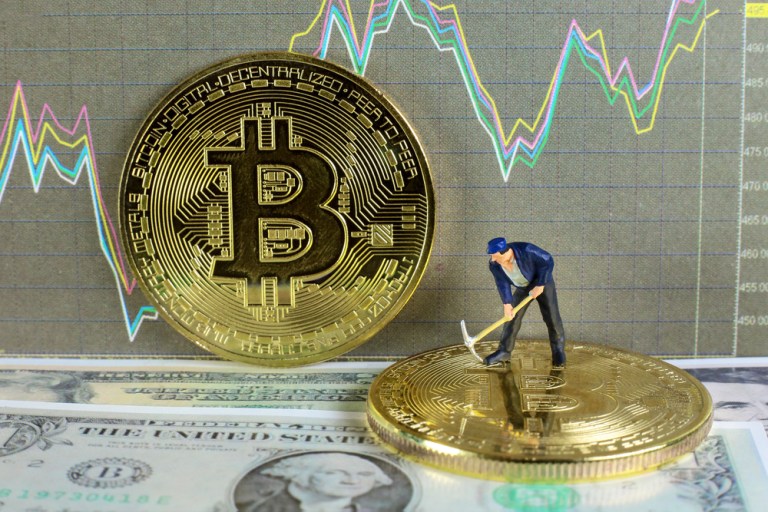Bitcoin Regulatory Roundup: SEC Swoops In On The Crypto Company After Surge

Amid rising interest and investment in digital currencies like bitcoin, some countries are issuing new warnings about the volatility involved in cryptocurrency trade. In today’s bitcoin roundup, regulatory bodies in the U.S. have suspended a bitcoin-focused company following questionable business practices, Singapore is advising “extreme caution” when investing in the potential bubble and neither Japan nor South Korea is recognizing cryptocurrencies as actual currencies.
Bitcoin-Based Firm Earns an SEC-Issued Trading Suspension
A small company saw shares increase 2,700 percent in the last month following its participation in the bitcoin cryptocurrency boom. According to Tuesday (Dec. 19) reports by The New York Post, the U.S. Securities and Exchange Commission (SEC) has suspended trading for The Crypto Company shares until Jan. 3, 2018, following “potentially manipulative transactions” last month. The company has a valuation of $11.9 billion.
Malibu, California-based Crypto calls itself “one of the first publicly traded technology companies” providing investors with “responsible access” to digital currencies and blockchain. The SEC reported concerns about how the company releases information in public filings, including potential insider tips regarding selling shares of its common stock. Crypto recently announced plans for a stock split, a 10-for-1, following surges in demand for the shares. The SEC has voiced concerns about the company’s “potentially manipulative transactions,” and SEC chair Jay Clayton advised investors to exercise “extreme caution” when investing in Crypto and other digital currencies.
Singapore’s Central Bank Advises ‘Extreme Caution’
Singapore’s central bank issued a warning of its own on Tuesday, encouraging “extreme caution” in regard to the “significant risks” taken when buying into cryptocurrencies, Reuters reported. The digital currencies market has ballooned from $17 billion at the beginning of the year to a more than $600 billion valuation now, and regulators are issuing new concerns about a potential bubble.
Amid those growing concerns about consumer protection in bitcoin investments, the Monetary Authority of Singapore (MAS) offered a statement that “MAS considers the recent surge in the prices of cryptocurrencies to be driven by speculation. The risk of a sharp reduction in prices is high. Investors in cryptocurrencies should be aware that they run the risk of losing all their capital.”
In a similar warning issued Monday (Dec. 18), the central bank of Denmark called bitcoin investments “deadly” and warned investors to avoid it. European economists reported a desire for better regulatory oversight in the cryptocurrency market, mostly because digital currencies have the potential to lead to criminal activity.
EU legislators recently agreed to stricter rules that would help to prevent money laundering, terrorism financing, tax evasion and other bad acts as a result of cryptocurrency involvement.
Japanese Finance Minister Rules Bitcoin Is Not a Credible Currency
Taro Aso, Japan’s prime minister, has said bitcoin is not a credible currency, Reuters reported. “There is no fixed definition on whether it’s a currency or not,” he noted. “This issue is a difficult one. It has not been proven to be credible enough to become a currency, so I need to watch for a little while more.”
The comments were made in response to reporters’ questions regarding news that France would propose a discussion to regulate bitcoin at a G20 group meeting for major economies in 2018. Aso noted that despite bitcoin’s growth, hard currency is still preferred in Japan.
South Korea Says Virtual Currencies Are Not Real
The Financial Supervisory Service (FSS) of South Korea is taking a stance similar to Japan’s prime minister, stating that bitcoin and other virtual currencies are not true currencies. “All we can do is to warn people [that] we don’t see virtual currencies as actual types of currency, meaning that we cannot step up regulation for now,” said FSS governor Choe Heung-sik. According to Reuters, the regulatory body has decided not to regulate the trade of virtual currencies.
Choe noted that regulations could encourage virtual currency trading, as an implementation of rules could be viewed as a government backing or encouragement for investors. A task force set South Korea’s first virtual currency trading rules last week, with the country’s government noting it might tax capital gains from virtual currency trade.
Bitcoin’s value peaked at $19,666 per coin in trading on Sunday (Dec. 17).